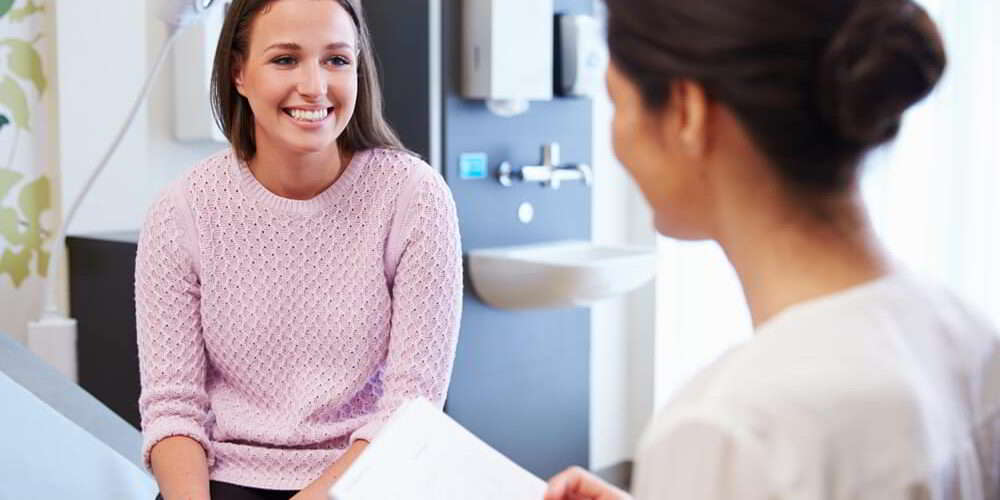

The thought of getting pregnant at 40 is, for some women, a scary thought. Although getting pregnant after 40 is possible without fertility treatment, your chances of conceiving are lower than they would have been in your 20s or 30s. This means, although it’s not impossible, it may take longer for you to conceive. While most women in their 40s have healthy pregnancies and healthy babies, there are some things you need to know about getting pregnant at 40.
Why Does a Woman’s Fertility Decline?
You may be wondering why your fertility declines as you age. Well, women are born with all the eggs they will ever have. The highest number of eggs your body possesses is at about 20-week gestations (while the girl is still in utero) when your egg supply would have been at around 6 to 7 million eggs. At birth, the egg numbers will decline to just over a million.
By puberty, between 300,000 to 500,000 eggs remain in the ovaries. From this number, only 300 eggs will be ever fully mature and are released during ovulation. As you age, the numbers of eggs decline. And, as you become closer to menopause, your ovaries become less responsive to the hormones responsible for triggering ovulation. This can also affect how well fertility drugs work.
Healthy Living is Important
Healthy living is essential when you are trying to get pregnant in your 40s. Sticking to a healthy diet, regular exercise, maintaining a healthy weight, and stopping smoking will ensure the health of your body and your baby. When you are in your 40s trying to conceive, your age is already working against you, so by practising healthy living, you can help improve your chances of successful conception and the birth of a healthy baby.
Antenatal Care for Over 40s
While you are pregnant, antenatal care is an important way to ensure both you and your baby remain healthy. Antenatal care is carried out regularly by your doctor or midwife. They will provide advice, answer any questions you may have and help prepare you for birth. Due to being in your 40s, you are more likely to:
- Experience a miscarriage
- Encounter high blood pressure or gestational diabetes
- Have placenta praevia (where the placenta develops in the wrong part of the uterus)
- Have multiple pregnancies
Due to the above, it is even more important you receive good antenatal care to ensure the health of you and your baby.
Increased Risk of Abnormalities
After 40, chromosomal abnormalities are very common as a woman’s eggs have trouble dividing as she ages and, therefore, unusual felt development can occur.
A Hospital Birth is Recommended
Women who are pregnant in their 40s are at higher risk of having birth difficulties such as:
- A caesarean section
- Your baby being born with a low birth weight
- Your baby in an awkward position at birth
- Your baby is born prematurely.
Although this does not mean that having a home birth is out of the question, it does mean that hospital birth may be the safest option. By giving birth in the hospital, you are more likely to receive medical intervention quickly (should you need it). Therefore, for women in their 40s, its recommended that they have a hospital birth.
If You Are Struggling to Conceive, Talk to Your Doctor
If you are a woman over the age of 40 and you are trying to conceive, it is important you do not delay seeking medical advice. If you have been having regular, unprotected sex with your partner for the last six months without a successful conception, you should talk to your doctor. It may be an odd concept to seek medical advice so soon into the ‘trying’ process but your fertility rates at the age of 40 are lower than they were in your 20s and, therefore, natural conception can be difficult.
By consulting your doctor, you will be able to ensure you do or do not require further medical advice or treatment. If your doctor does discover a problem with your fertility, further action may be required to help assist you in having a healthy pregnancy and baby. However, after tests and examination, your doctor may also suggest that you continue to try conceiving naturally for another few months. After this time, you may be encouraged to come back if you are unsuccessful to discuss your options.
Assisted Fertility Treatments
For women in their 40s who are struggling to conceive naturally, fertility treatment may be required. Here at IVI, we offer numerous fertility treatments to our patients in the hope of increasing their chances of conception. The fertility treatments we offer are:
- IVF (in vitro fertilisation)
- IVF with ICSI (intracytoplasmic sperm injection)
- IUI (intrauterine insemination)
Contact IVI Today
If you would like to know more about the services we offer here at IVI, please feel free to browse the treatment pages on our website. If you would like more information and advice regarding your situation, you can contact our friendly UK Patient Support Services.





Comments are closed here.